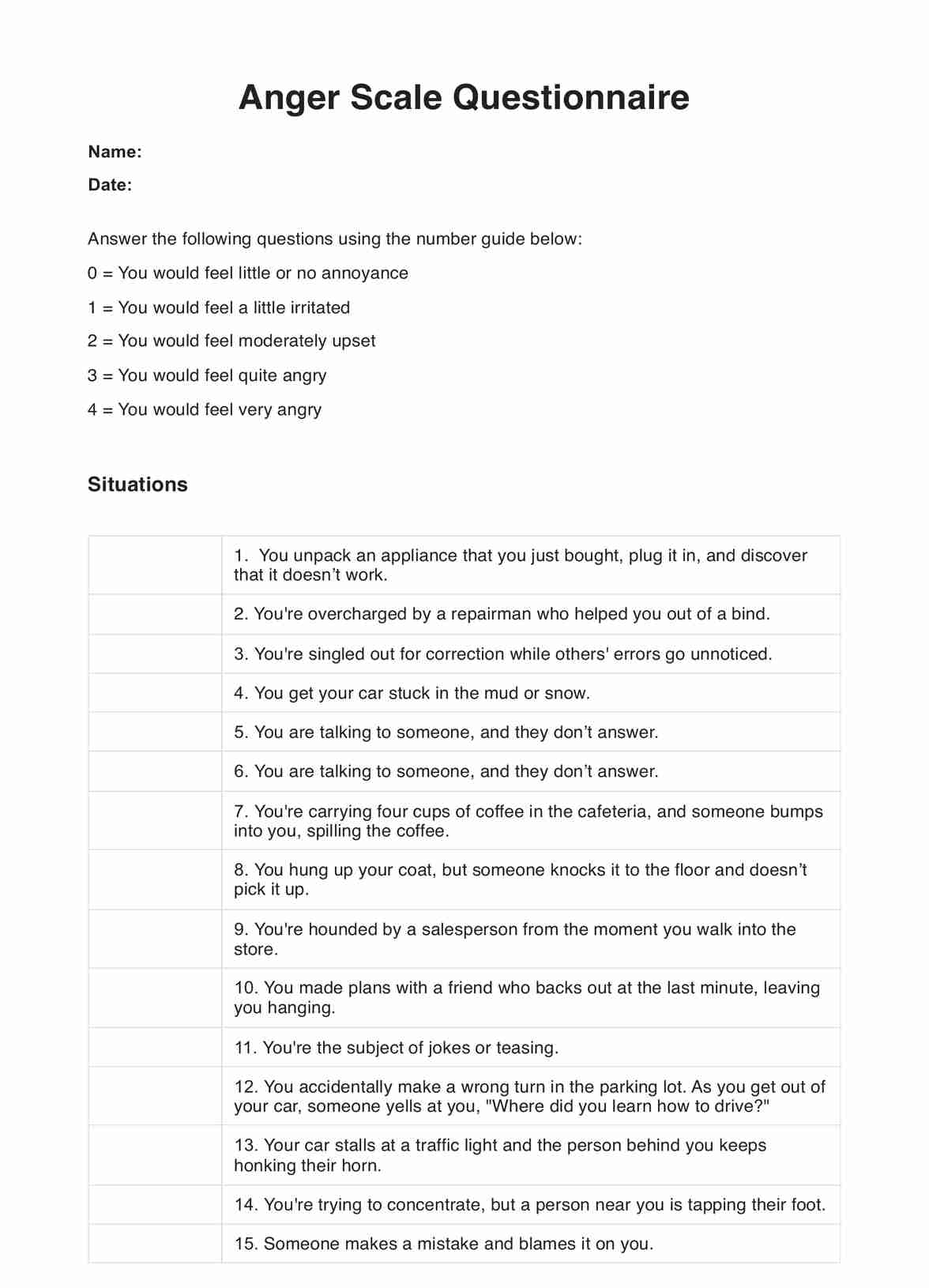Mental health professionals like psychologists, therapists, counselors, and individuals for self-assessment

Anger Scale
Discover how Anger Scales can effectively assess and manage anger issues. Learn more about these tools and how to utilize them in a therapeutic context.
Use Template
Anger Scale Template
Commonly asked questions
The Anger Scale is used when there's a need to assess an individual's anger levels, inform therapy plans, or track progress in anger management.
An individual or a professional administers the Anger Scale, answers the questions, and then analyzes the responses to assess the anger level.
EHR and practice management software
Get started for free
*No credit card required
Free
$0/usd
Unlimited clients
Telehealth
1GB of storage
Client portal text
Automated billing and online payments











